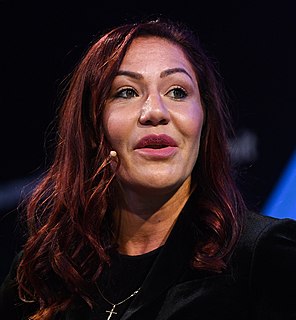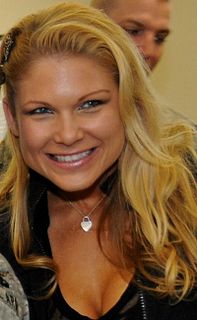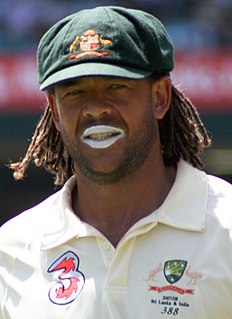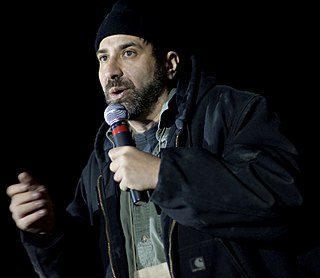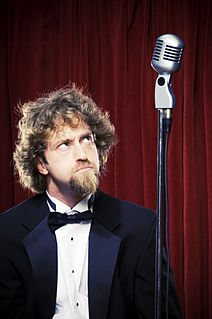A Quote by Terry Pratchett
She'd stopped reading the kind of women's magazine that talked about romance and knitting and started reading the kind of women's magazine that talked about orgasms, but apart from making a mental note to have one if ever the occasion presented itsel
Related Quotes
On the other couch a women sits with a young boy looking through a picture book about Babar the Elephant. When I find a magazine and I lean back to start reading it, I can see the women watching me out of the corner of her eye. She moves closer to the child and she leans over and kisses his forehead. I know why she does it and i don't blame her.
I mean, the criticism of Donald Trump is that he could win this race, and that he was doing well and he was rebounding and his numbers in various states were rebounding - and then he went after Miss Universe and talked about her being too fat and talked about women's looks again, and women don't like that...
He lay far across the room from her, on a winter island separated by an empty sea. She talked to him for what seemed a long while and she talked about this and she talked about that and it was only words, like the words he had heard once in a nursery at a friend's house, a two-year-old child building word patters, like jargon, making pretty sounds in the air.
For as long as men and women have talked about war, they have talked about it in terms of right and wrong. And for almost as long, some among them have derided such talk, called it a charade, insisted that war lies beyond (or beneath) moral judgment. War is a world apart, where life itself is at stake, where human nature is reduced to its elemental forms, where self-interest and necessity prevail. Here men and women do what they must to save themselves and their communities, and morality and law have no place. Inter arma silent leges: in time of war the law is silent.
At about the age of seven … I wrote exactly the kinds of stories I was reading: All my characters were white and blue-eyed, they played in the snow, they ate apples, and they talked a lot about the weather: how lovely it was that the sun had come out. This despite the fact that I lived in Nigeria; we didn’t have snow, we ate mangoes, and we never talked about the weather, because there was no need to.

